
Ubon Ratchathani: The Heart of Thai Heritage and Natural Wonders
Ubon Ratchathani, often simply called Ubon, is a city in the northeastern region of Thailand, known for its rich cultural heritage and stunning natural beauty. This city offers a unique blend of traditional Thai culture and serene landscapes, making it a must-visit destination for travelers seeking an authentic Thai experience. One of the city's main attractions is the Ubon Ratchathani National Museum, which showcases the region's history and art. The museum is located in a beautiful colonial-era building and provides a fascinating insight into the local culture. Another cultural highlight is the Thung Si Mueang Park, a central park where you can see the famous Candle Festival sculptures on display throughout the year. Nature lovers will be captivated by the Pha Taem National Park, known for its stunning cliffs and ancient rock paintings dating back thousands of years. The park offers breathtaking views of the Mekong River and Laos in the distance. For those who enjoy water activities, the Sirindhorn Dam is a perfect spot for a relaxing day out. Here, you can enjoy boating, fishing, and picnicking surrounded by tranquil waters and lush greenery. Ubon Ratchathani is also famous for its vibrant markets and delicious local cuisine. The Ratchathani Night Market is a bustling hub where you can sample a wide variety of Thai street food and shop for unique souvenirs. Don't miss trying the local specialty dishes such as Som Tum (papaya salad) and Khao Soi (curry noodles), which reflect the region's culinary diversity. Whether you are interested in history, nature, or food, Ubon Ratchathani offers a rich and diverse travel experience that caters to all types of tourists. Its warm and welcoming atmosphere will make you feel right at home as you explore this hidden gem of Thailand.
Local tips in Ubon Ratchathani
- Visit during the Candle Festival in July to witness the city's most famous cultural event.
- Rent a bike to explore the city and surrounding areas at your own pace.
- Try the local street food at the Ratchathani Night Market for an authentic culinary experience.
- Wear comfortable shoes for hiking in Pha Taem National Park.
- Carry cash, as some local markets and small eateries do not accept credit cards.
Ubon Ratchathani: The Heart of Thai Heritage and Natural Wonders
Ubon Ratchathani, often simply called Ubon, is a city in the northeastern region of Thailand, known for its rich cultural heritage and stunning natural beauty. This city offers a unique blend of traditional Thai culture and serene landscapes, making it a must-visit destination for travelers seeking an authentic Thai experience. One of the city's main attractions is the Ubon Ratchathani National Museum, which showcases the region's history and art. The museum is located in a beautiful colonial-era building and provides a fascinating insight into the local culture. Another cultural highlight is the Thung Si Mueang Park, a central park where you can see the famous Candle Festival sculptures on display throughout the year. Nature lovers will be captivated by the Pha Taem National Park, known for its stunning cliffs and ancient rock paintings dating back thousands of years. The park offers breathtaking views of the Mekong River and Laos in the distance. For those who enjoy water activities, the Sirindhorn Dam is a perfect spot for a relaxing day out. Here, you can enjoy boating, fishing, and picnicking surrounded by tranquil waters and lush greenery. Ubon Ratchathani is also famous for its vibrant markets and delicious local cuisine. The Ratchathani Night Market is a bustling hub where you can sample a wide variety of Thai street food and shop for unique souvenirs. Don't miss trying the local specialty dishes such as Som Tum (papaya salad) and Khao Soi (curry noodles), which reflect the region's culinary diversity. Whether you are interested in history, nature, or food, Ubon Ratchathani offers a rich and diverse travel experience that caters to all types of tourists. Its warm and welcoming atmosphere will make you feel right at home as you explore this hidden gem of Thailand.
When is the best time to go to Ubon Ratchathani?
Iconic landmarks you can’t miss
Wat Sirindhorn Wararam
Explore the stunning Wat Sirindhorn Wararam, a unique Buddhist temple in Ubon Ratchathani, where art and spirituality converge in a serene setting.
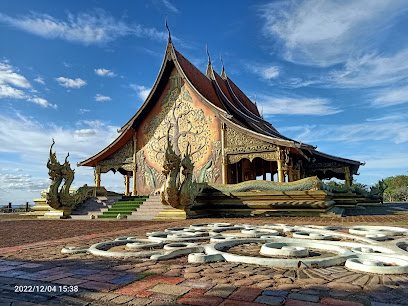
Wat Phra That Nong Bua
Discover the exquisite Wat Phra That Nong Bua, a serene Buddhist temple in Ubon Ratchathani, Thailand, showcasing magnificent architecture and rich cultural heritage.
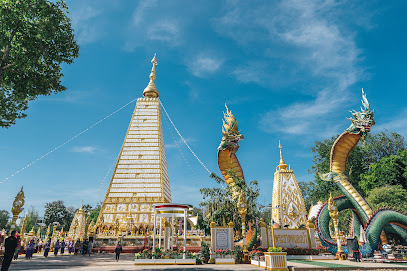
Big C Supercenter Ubon Ratchathani
Experience shopping and local flavors at Big C Supercenter Ubon Ratchathani—your one-stop destination for groceries, souvenirs, and delicious treats.
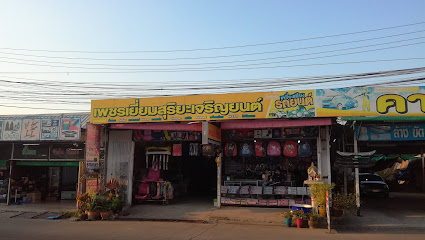
Thung Sri Mueang
Explore the lush beauty and cultural richness of Thung Sri Mueang, Ubon Ratchathani's serene city park and vibrant tourist attraction.
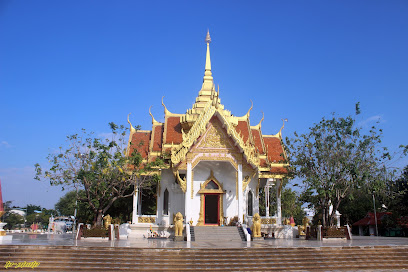
Pha Taem National Park
Explore Pha Taem National Park, a breathtaking national park in Thailand featuring stunning rock paintings and diverse ecosystems.
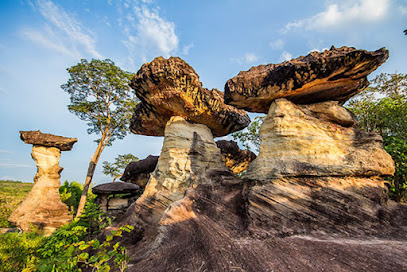
Wat Tham Khuha Sawan, Ubon Ratchathani City
Discover the tranquil beauty and spiritual heritage of Wat Tham Khuha Sawan, a breathtaking Buddhist temple in Ubon Ratchathani, Thailand.
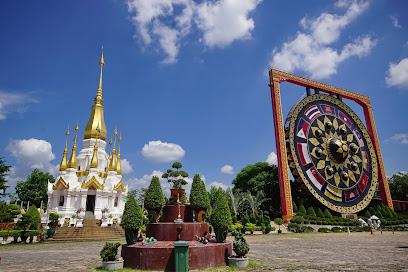
Sunee Grand Hotel
Experience comfort and convenience at Sunee Grand Hotel, your ideal base for exploring Ubon Ratchathani's rich culture and attractions.

Ubon Ratchathani Bus Terminal
Discover the vibrant Ubon Ratchathani Bus Terminal, your key gateway to the cultural treasures and scenic landscapes of Northeast Thailand.
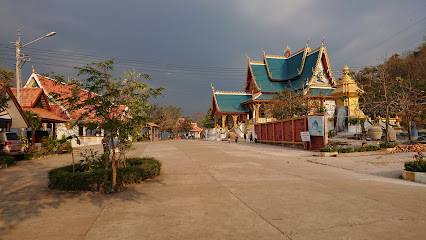
Pattaya Noi at Ubon Ratchathani
Explore the serene beauty and cultural richness of Pattaya Noi at Ubon Ratchathani, a perfect escape for nature lovers and cultural enthusiasts alike.
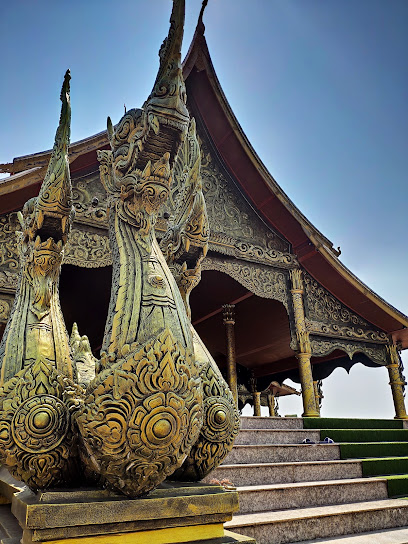
Lotus's Ubonratchathani
Explore the vibrant shopping experience at Lotus's Ubonratchathani, featuring a wide range of products and delightful local ice cream.
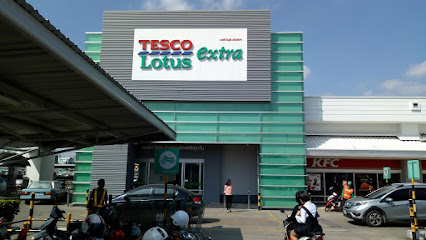
Thung Sri Muang Night Market
Discover the flavors and culture of Thailand at Thung Sri Muang Night Market in Ubon Ratchathani, a vibrant hub for food and local crafts.
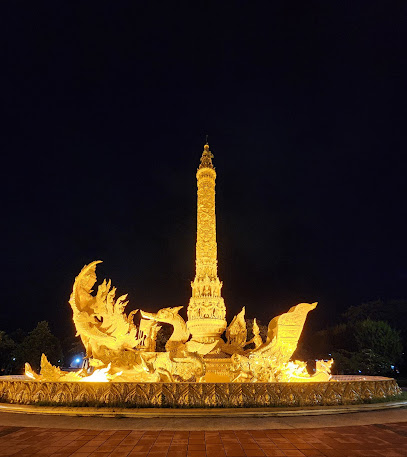
Ubon Ratchathani International Airport
Discover the gateway to Isan at Ubon Ratchathani International Airport, blending modern travel convenience with local cultural charm.
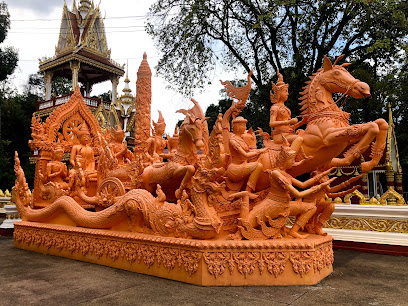
Wat Maha Wanaram
Explore the tranquil beauty of Wat Maha Wanaram, a stunning Buddhist temple in Ubon Ratchathani, rich in cultural heritage and exquisite architecture.
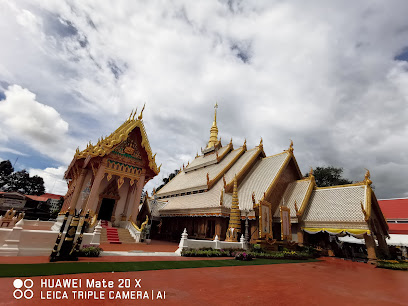
Ubon Ratchathani Zoo
Explore Ubon Ratchathani Zoo, a captivating tourist attraction in Thailand, featuring a diverse collection of animals in a beautiful natural setting.
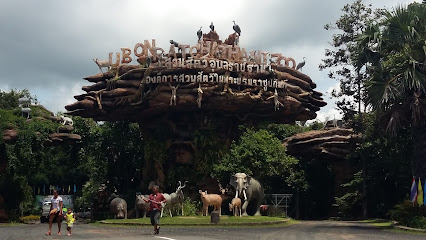
Sam Phan Bok
Experience the breathtaking beauty of Sam Phan Bok, the Grand Canyon of Thailand, with its stunning rock formations and serene waters.
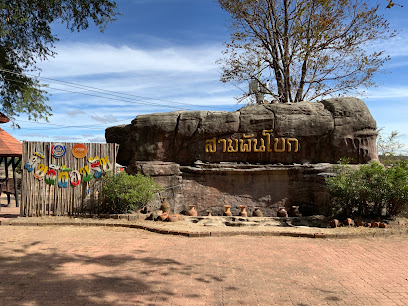
Unmissable attractions to see
Wat Phra That Nong Bua
Explore the stunning Wat Phra That Nong Bua, a breathtaking Buddhist temple in Ubon Ratchathani that blends spirituality and architectural beauty.
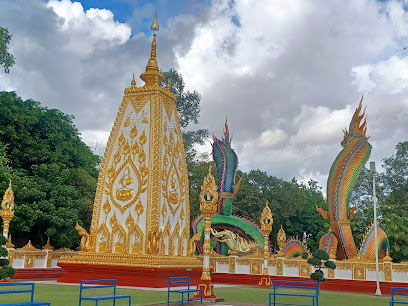
Thung Sri Mueang
Thung Sri Mueang: A lush urban park in Ubon Ratchathani, perfect for relaxation, cultural immersion, and vibrant local markets.
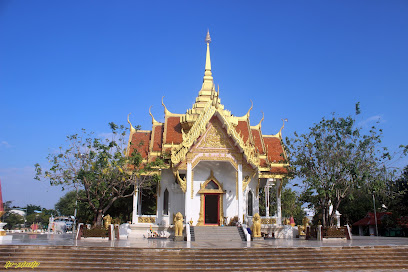
Ubon Ratchathani Zoo
Experience the vibrant wildlife and natural beauty at Ubon Ratchathani Zoo, a captivating attraction for families and nature lovers.
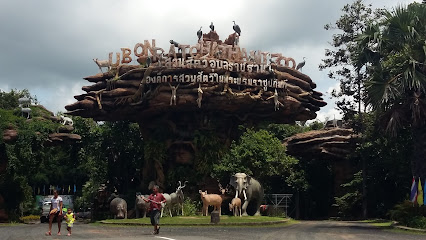
Khu Duea Beach
Discover the tranquil beauty of Khu Duea Beach in Ubon Ratchathani, a perfect getaway for relaxation, fun activities, and local cuisine.
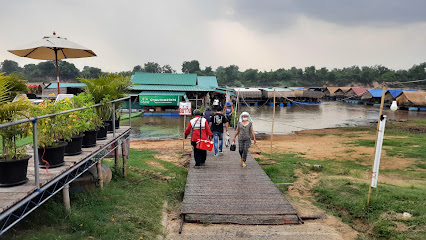
Wat Thung Si Mueang
Discover the tranquil beauty and cultural richness of Wat Thung Si Mueang, a must-visit Buddhist temple in Ubon Ratchathani.
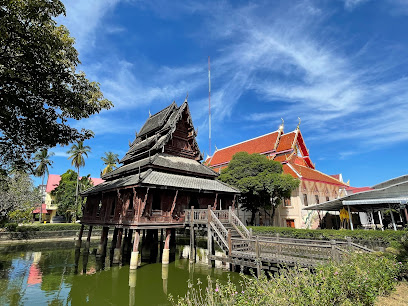
Nong Bua Public Park
Discover tranquility at Nong Bua Public Park, a green retreat in Ubon Ratchathani, filled with recreational opportunities and local charm.
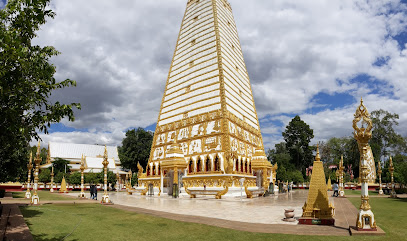
Wat Chaeng
Explore the serene beauty and rich cultural heritage of Wat Chaeng, a stunning Buddhist temple in Ubon Ratchathani, Thailand.
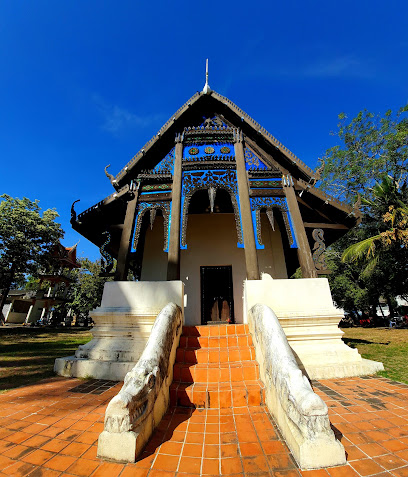
Huai Muang Park
Experience the calming beauty of Huai Muang Park, a state park in Ubon Ratchathani perfect for relaxation and enjoying nature's tranquility.
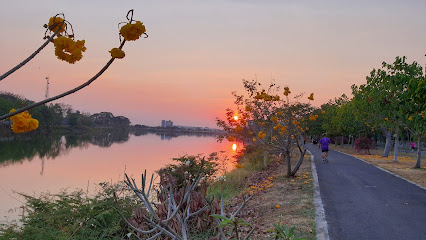
Ubon Ratchathani National Museum
Explore Ubon Ratchathani's cultural gems at the National Museum, a hub of art, history, and heritage in Thailand.
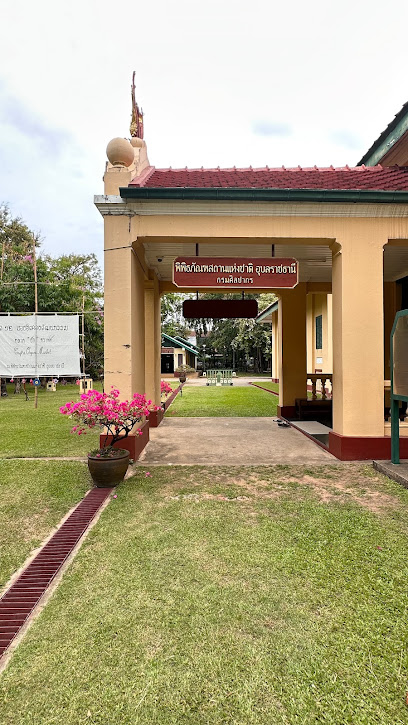
Nagawat Park
Explore Nagawat Park in Ubon Ratchathani: a lush green sanctuary perfect for relaxation, recreation, and cultural experiences.
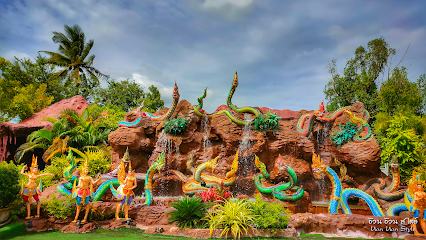
Ubon Wanarom Arboretum
Explore the beauty of nature at Ubon Wanarom Arboretum, an ecological park in Ubon Ratchathani, perfect for relaxation and family outings.
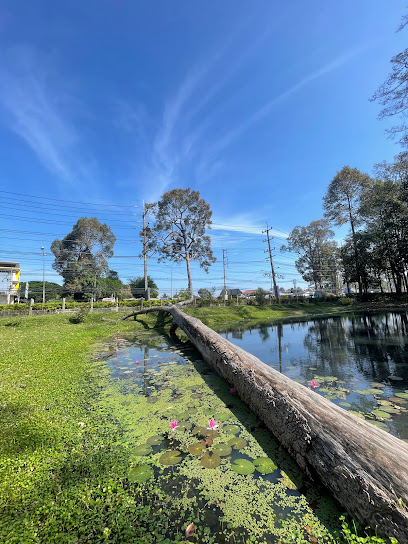
Wat Si Ubon Rattanaram
Discover the beauty and serenity of Wat Si Ubon Rattanaram, a stunning Buddhist temple in Ubon Ratchathani, Thailand, perfect for cultural exploration.
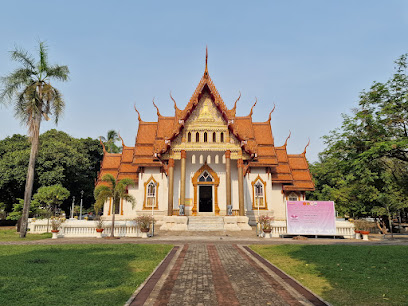
Thong Lor Vista Waterpark
Discover the thrill of water fun at Thong Lor Vista Waterpark, a family-friendly destination in Ubon Ratchathani with exciting slides and relaxing pools.
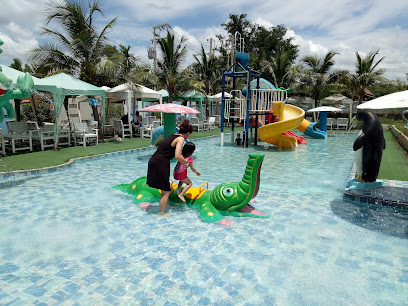
Burapa Nok Public Park
Discover the tranquil beauty of Burapa Nok Public Park in Ubon Ratchathani, a perfect escape for nature lovers and a serene spot for relaxation.
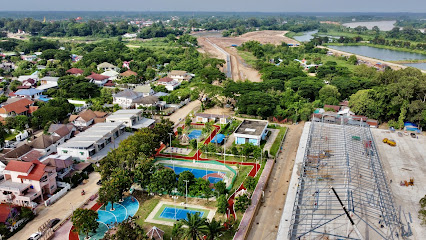
Matcha Park
Explore the tranquil beauty of Matcha Park in Ubon Ratchathani, where nature welcomes you to unwind and discover its hidden wonders.
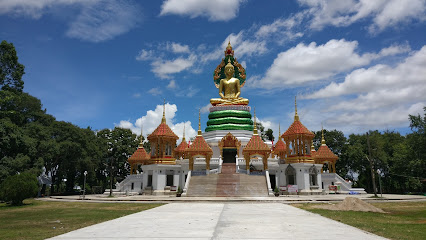
Essential places to dine
Santi Restaurant
Experience the essence of Thailand with authentic dishes at Santi Restaurant in Ubon Ratchathani - where flavor meets tradition.
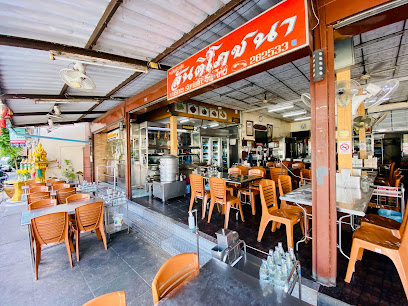
Chomjan Bar & Restaurant
Experience authentic Thai flavors at Chomjan Bar & Restaurant in Ubon Ratchathani - where every dish tells a story.
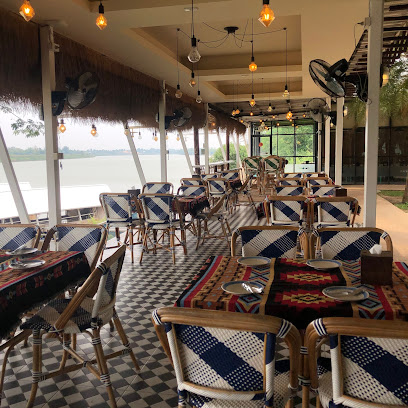
Lek Nom Sod
Experience authentic Thai flavors at Lek Nom Sod in Ubon Ratchathani – where delicious meals meet affordability in a welcoming atmosphere.
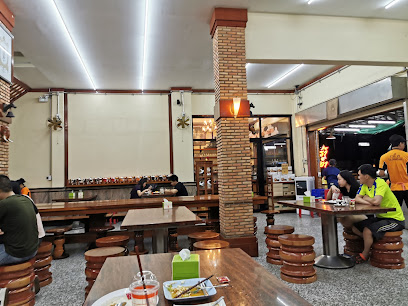
Indochine
Savor authentic Vietnamese cuisine at Indochine in Ubon Ratchathani – where every dish tells a story.
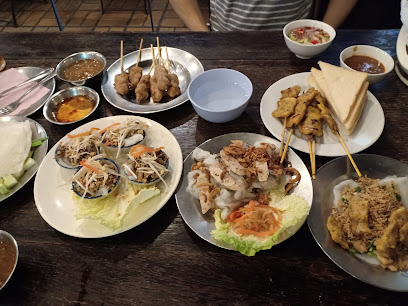
Tee Umnuaychoke
Discover the authentic flavors of Thai porridge at Tee Umnuaychoke in Ubon Ratchathani—an affordable culinary delight for every food lover.
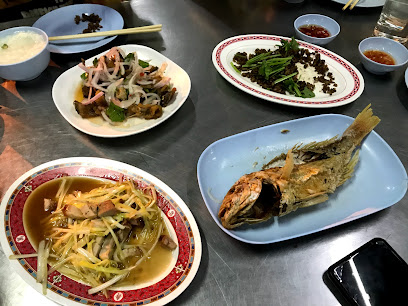
OSHINEI Ubon Ratchathani
Experience the best of Japanese cuisine at OSHINEI Ubon Ratchathani – where every meal is a celebration of flavor and freshness.
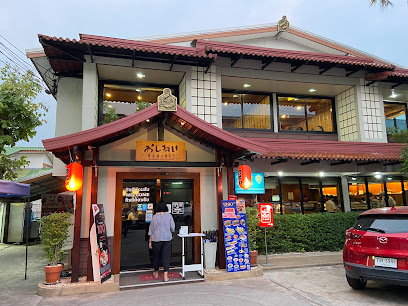
SOMTUM JINDA RESTAURANT
Experience the essence of authentic Thai cuisine at Somtum Jinda Restaurant in Ubon Ratchathani with vibrant flavors and fresh ingredients.
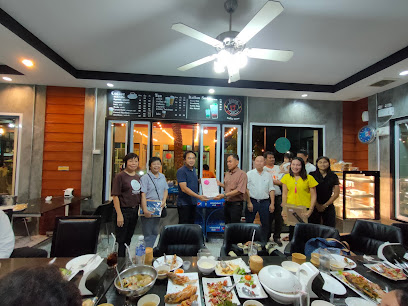
Pakmor Robot
Savor the authentic taste of Vietnam at Pakmor Robot in Ubon Ratchathani – where flavors meet tradition in a warm and welcoming atmosphere.
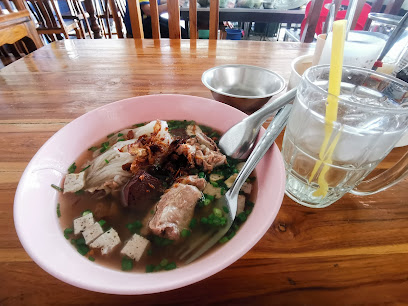
Peppers Restaurant & Bakery
Experience a delightful mix of American classics and Thai specialties at Peppers Restaurant & Bakery in Ubon Ratchathani.
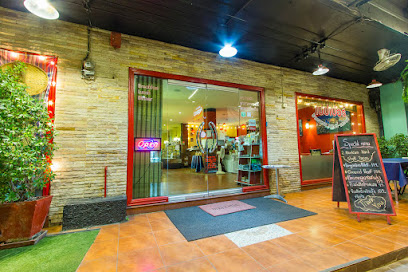
Agave Vietnamese Cuisine & Cafe
Discover authentic Vietnamese cuisine at Agave Vietnamese Cuisine & Cafe in Ubon Ratchathani – a culinary gem offering delicious dishes in a warm atmosphere.
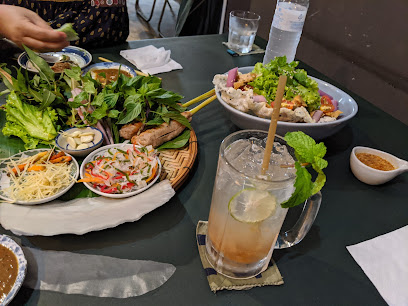
Morning Ubon, Brunch Restaurant, Ubon Ratchathani City
Discover the flavors of Thailand at Morning Ubon, where every brunch is a celebration of local culture and culinary excellence.
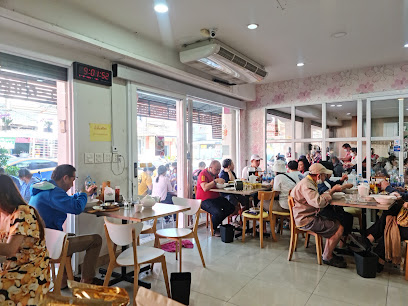
Sabaijai Vietnamese foods
Discover Sabaijai Vietnamese Foods: A delightful spot in Ubon Ratchathani serving authentic and affordable Vietnamese cuisine.
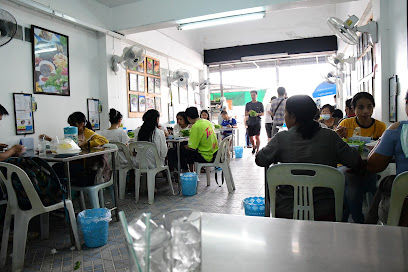
tumkratoei ubon ratchathani
Discover authentic Thai flavors at Tumkratoei in Ubon Ratchathani - where every dish tells a story.
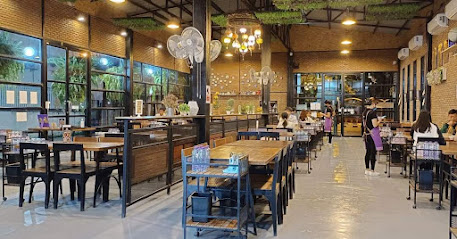
The Outside Inn
Discover the perfect blend of comfort and culinary delight at The Outside Inn in Ubon Ratchathani.
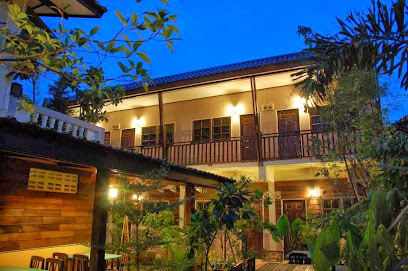
เรือนอาหารวิวมูล
Discover authentic Thai flavors at เรือนอาหารวิวมูล with stunning river views—an unforgettable dining experience in Ubon Ratchathani.
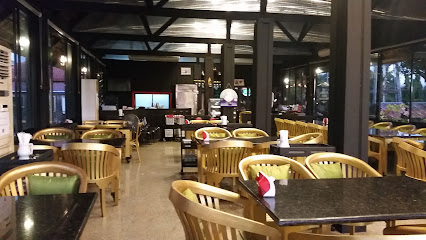
Markets, malls and hidden boutiques
Central Ubon
Explore Central Ubon, a vibrant shopping mall in Ubon Ratchathani, featuring diverse shops, delicious dining, and exciting entertainment for everyone.
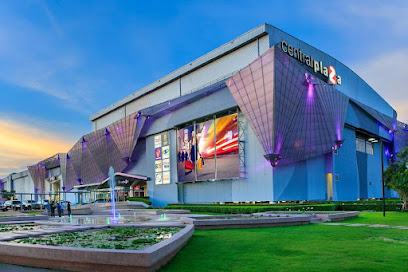
Lotus's Ubonratchathani
Explore the vibrant Lotus's Ubonratchathani, a hypermarket and ice cream shop showcasing local flavors and products in the heart of Thailand.
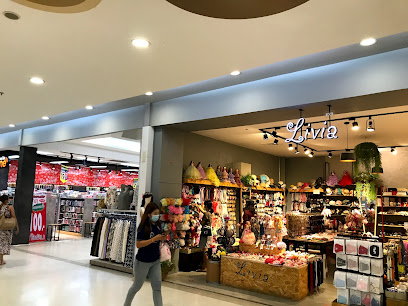
Robinson Ubon Ratchathani โรบินสัน อุบลราชธานี
Explore the vibrant shopping experience at Robinson Ubon Ratchathani, where local culture meets modern retail therapy.
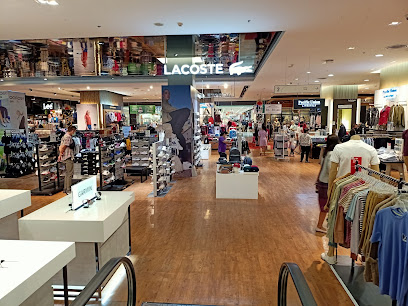
Ubon Square อุบลสแควร์
Explore Ubon Square, the ultimate shopping mall in Ubon Ratchathani offering diverse retail experiences and delicious local cuisine.
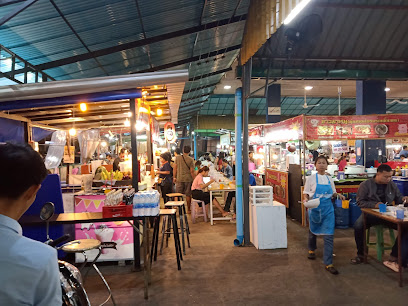
OTOP Center Ubon ศูนย์แสดงสินค้า OTOP อุบลราชธานี
Explore the OTOP Center Ubon: A cultural shopping experience showcasing local artisans and unique Thai products in Ubon Ratchathani.
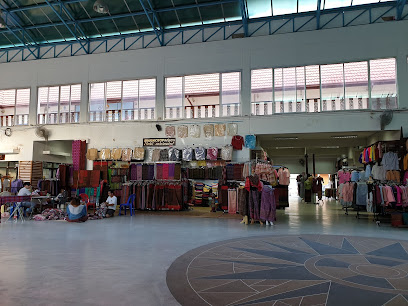
Index Living Mall Ubon Ratchathani
Discover stylish and functional furniture at Index Living Mall Ubon Ratchathani, your ultimate destination for home decor and furnishings.
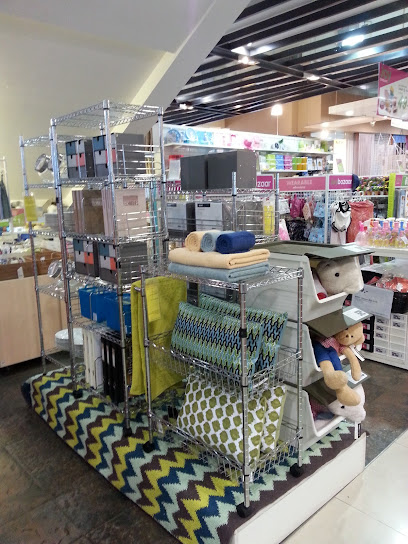
Ubon Plaza
Explore Ubon Plaza, the ultimate shopping destination in Ubon Ratchathani, blending local culture with a diverse retail experience.
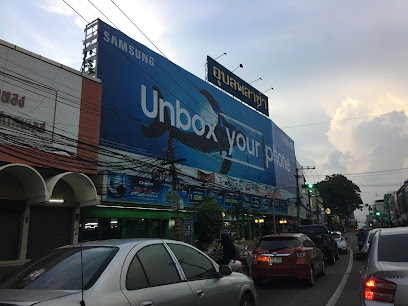
Amway Thailand Ubon Ratchathani
Explore premium health and beauty products at Amway Thailand Ubon Ratchathani, your go-to destination for wellness and cosmetics.
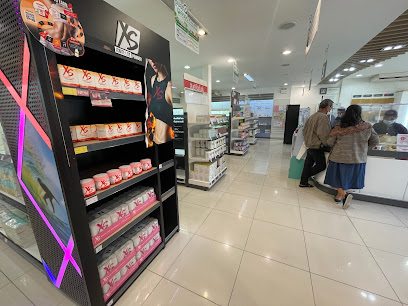
iStudio Central Ubonratchathani (by copperwired)
Explore cutting-edge technology at iStudio Central Ubonratchathani, your go-to destination for Apple products and expert advice in Thailand.
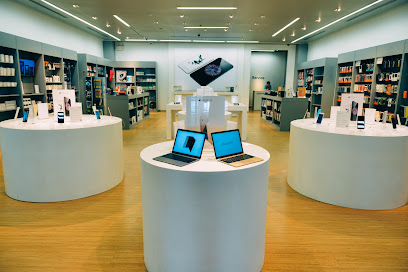
Venus JahHigh Cannabis cafe กัญชาอุบล
Discover the vibrant cannabis culture at Venus JahHigh Cannabis Cafe in Ubon Ratchathani, a perfect blend of relaxation and community.
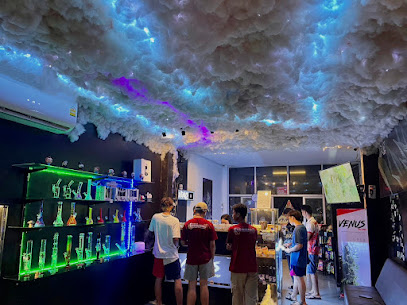
Thailand Currency Department Stores
Discover the vibrant Thailand Currency Department Stores in Ubon Ratchathani, where shopping meets local culture in a unique variety store experience.
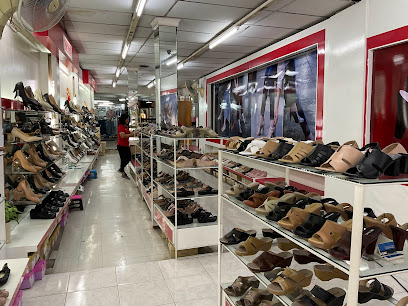
อี้เหวิน อุบลราชธานี
Explore the vibrant flavors of Ubon Ratchathani at อี้เหวิน grocery store, where local ingredients and authentic Thai snacks await.
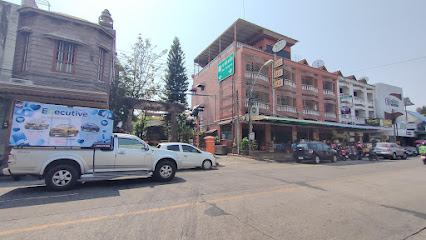
SUCCESS SPORTS ซัคเซสสปอร์ต
Shop at Success Sports in Ubon Ratchathani for top-notch athletic wear and gear, perfect for every adventure and athletic pursuit.
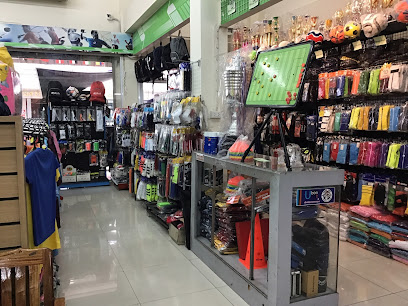
Zonic Vape Ubon
Explore Ubon Ratchathani's vibrant vaping scene at Zonic Vape Ubon, your go-to destination for quality vaporizers and accessories.
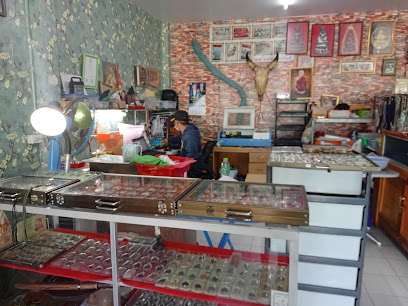
กันดั้ม อุบล
Discover a paradise for Gundam fans at Gundam Ubon, where model kits and collectibles await in the heart of Ubon Ratchathani.
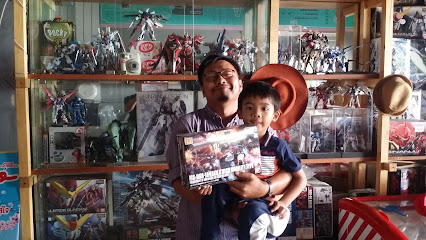
Essential bars & hidden hideouts
Ubon Tap Taste House Craft Beer & Foods
Discover the essence of Ubon Ratchathani at Ubon Tap Taste House, where craft beer and delicious food unite in a vibrant atmosphere.
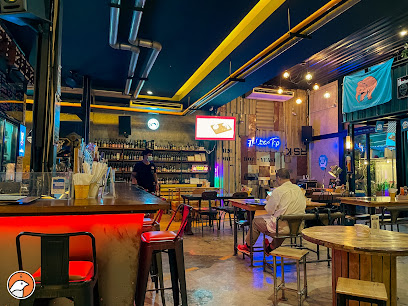
Wrong Way Cafe
Discover the lively Wrong Way Cafe in Ubon Ratchathani, where local drinks and a vibrant atmosphere await you.
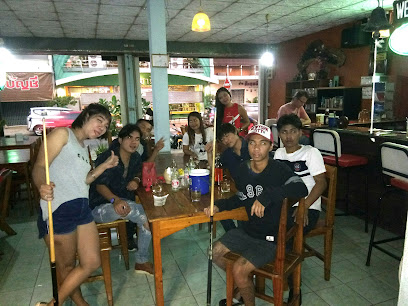
Acetylene
Experience the vibrant nightlife of Ubon Ratchathani at Acetylene, a lively bar offering a delightful mix of drinks and a warm atmosphere.
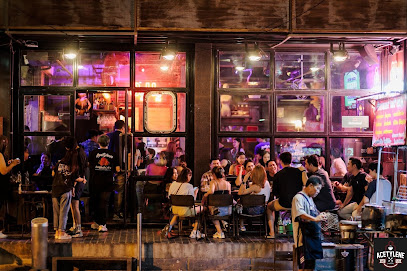
Masuk Ubon
Experience the vibrant nightlife of Ubon Ratchathani at Masuk Ubon, a bar offering unique cocktails and a warm, inviting atmosphere.
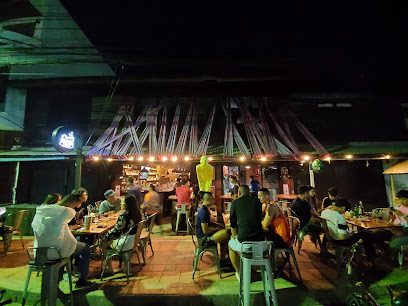
The Closet Cocktail Bar
Discover the vibrant mixology scene at The Closet Cocktail Bar in Ubon Ratchathani, where innovative drinks meet a cozy atmosphere.
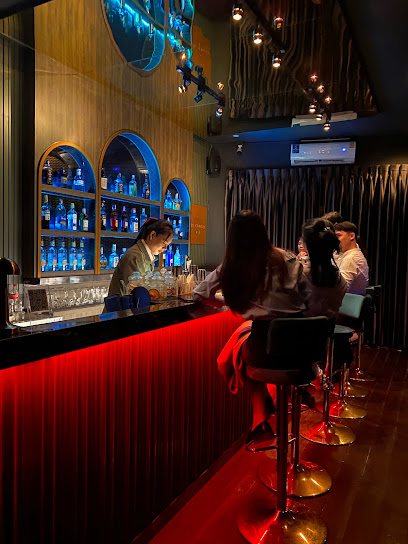
Ninety Nine Bar & Restaurant
Discover the lively Ninety Nine Bar & Restaurant in Ubon Ratchathani, a perfect mix of local flavors and vibrant atmosphere for an unforgettable experience.
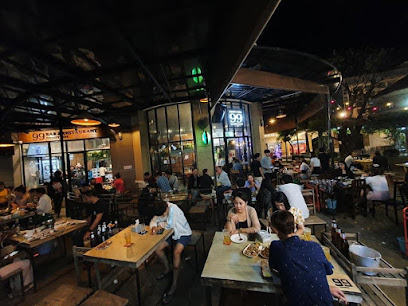
EscoBar เอสโกบาร์
Discover the vibrant cocktail culture at EscoBar, Ubon Ratchathani's premier drinking destination, perfect for socializing and unwinding.
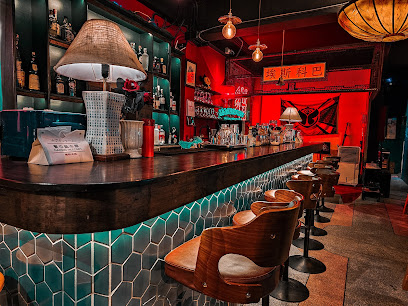
COOL BAR MILK BAR
Discover the delightful flavors of Cool Bar Milk Bar, where refreshing milk-based beverages and a cozy atmosphere await in Ubon Ratchathani.
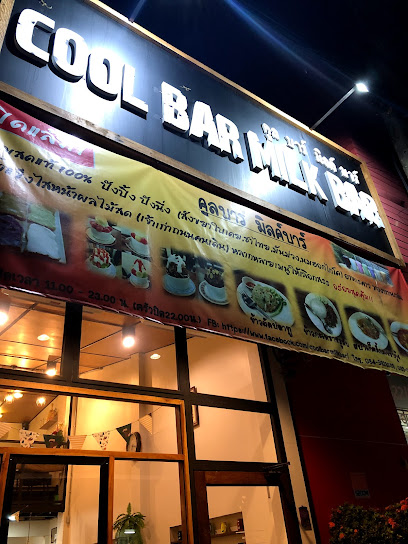
HYDE BAR (ไฮด์ บาร์)
Dive into the nightlife at Hyde Bar, Ubon Ratchathani’s premier cocktail destination offering a lively atmosphere and exquisite drinks.
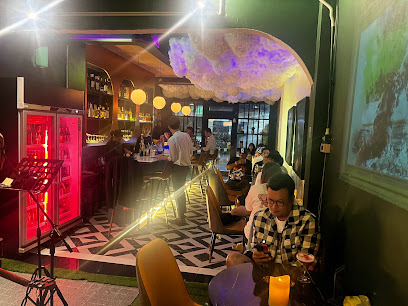
ชื่นชม บาร์ Chuenchom
Experience the heart of Ubon Ratchathani's nightlife at Chuenchom Bar, where great drinks and local vibes come together.
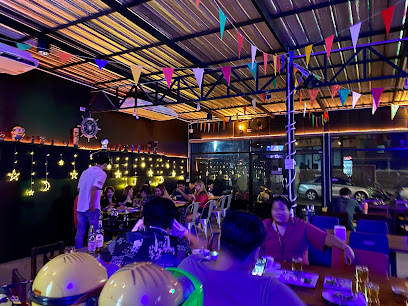
Syndicate UBP
Experience the vibrant nightlife at Syndicate UBP, Ubon Ratchathani's premier bar for cocktails, live music, and local culture.
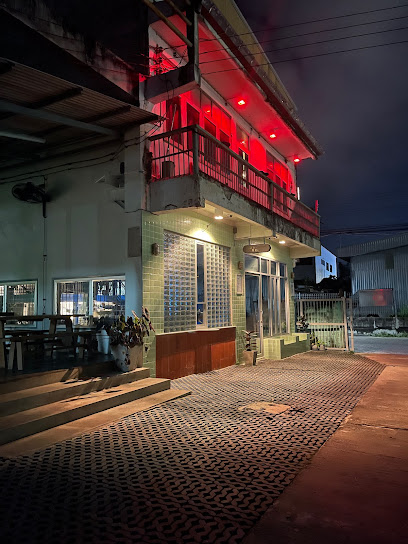
Sometimes i just wanna ...
Immerse yourself in the vibrant music scene of Ubon Ratchathani at this lively live music bar, where local talent shines.
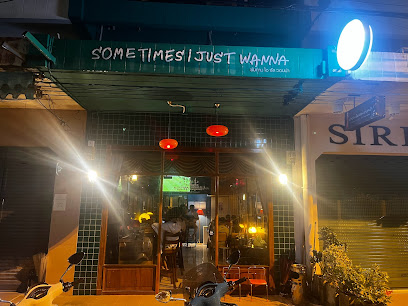
Fin Pub Ubon
Discover the vibrant nightlife at Fin Pub Ubon, where great drinks and a friendly atmosphere await you in Ubon Ratchathani.
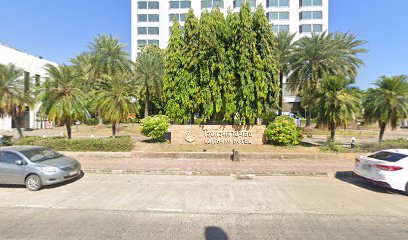
Roundabout bar
Experience the vibrant nightlife of Ubon Ratchathani at Roundabout Bar, where locals and tourists unite over drinks and lively conversation.
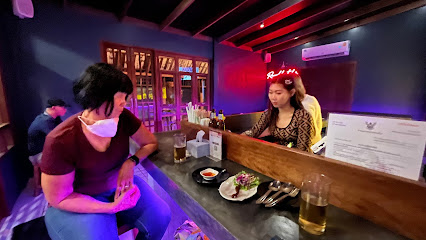
Local Phrases
-
- Helloสวัสดี
[sawasdee] - Goodbyeลาก่อน
[laa kon] - Yesใช่
[chai] - Noไม่
[mai] - Please/You're welcomeโปรด/ยินดีต้อนรับ
[prode/yin dee dton rap] - Thank youขอบคุณ
[kop khun] - Excuse me/Sorryขอโทษ
[kor toht] - How are you?สุขสบายไหม
[suk sa bai mai] - Fine. And you?สบายดีค่ะ คุณล่ะ
[sabai dee ka kun la] - Do you speak English?คุณพูดภาษาอังกฤษได้ไหม
[kun poot paa saa ang grit dai mai] - I don't understandฉันไม่เข้าใจ
[chan mai kao jai]
- Helloสวัสดี
-
- I'd like to see the menu, pleaseขอดูเมนูหน่อยค่ะ
[kor doo menu noi ka] - I don't eat meatฉันไม่กินเนื้อ
[chan mai gin neuua] - Cheers!ชนแก้ว
[chon gaeo] - I would like to pay, pleaseขอจ่ายเงินหน่อยค่ะ
[kor jai ngern noi ka]
- I'd like to see the menu, pleaseขอดูเมนูหน่อยค่ะ
-
- Help!ช่วยด้วย
[chuay duay] - Go away!ไปทางนั้น
[pai tang nan] - Call the Police!โทรตำรวจ
[tor tamruat] - Call a doctor!โทรหมอ
[tor mor] - I'm lostฉันหลงทาง
[chan long tang] - I'm illฉันไม่สบาย
[chan mai sabai]
- Help!ช่วยด้วย
-
- I'd like to buy...ฉันอยากซื้อ...
[chan yak seuu...] - I'm just lookingฉันแค่ดู
[chan kae doo] - How much is it?ราคาเท่าไหร่
[ra kaa tao rai] - That's too expensiveแพงไป
[paeng pai] - Can you lower the price?ลดราคาได้ไหม
[lot ra kaa dai mai]
- I'd like to buy...ฉันอยากซื้อ...
-
- What time is it?ตอนนี้กี่โมง
[ton nee kee mong] - It's one o'clockเป็นโมงที่หนึ่ง
[pen mong tee neung] - Half past (10)สามสิบครึ่ง
[saam sip khrung] - Morningเช้า
[chao] - Afternoonบ่าย
[bai] - Eveningเย็น
[yen] - Yesterdayเมื่อวาน
[meua waan] - Todayวันนี้
[wan nee] - Tomorrowพรุ่งนี้
[proong nee] - 1หนึ่ง
[neung] - 2สอง
[song] - 3สาม
[saam] - 4สี่
[see] - 5ห้า
[ha] - 6หก
[hok] - 7เจ็ด
[jet] - 8แปด
[paet] - 9เก้า
[gao] - 10สิบ
[sip]
- What time is it?ตอนนี้กี่โมง
-
- Where's a/the...?...อยู่ที่ไหน
[... yu tee nai] - What's the address?ที่อยู่คืออะไร
[tee yu keu a rai] - Can you show me (on the map)?แสดงให้ฉันดูได้ไหม
[sa deung hai chan doo dai mai] - When's the next (bus)?รถเมล์ต่อไปเมื่อไหร่
[rot mel tor bai meu ra rai] - A ticket (to ....)ตั๋วไป...
[tua bai...]
- Where's a/the...?...อยู่ที่ไหน
History of Ubon Ratchathani
-
Ubon Ratchathani, often referred to simply as Ubon, was founded in the late 18th century by Prince Kham Phong. The city was established in 1786 as a settlement for Lao people who migrated from Vientiane following the Siamese-Lao War. Under the reign of King Rama I of the Chakri Dynasty, Ubon became an important frontier town and administrative center.
-
In the late 19th century, Ubon Ratchathani became strategically significant during the colonial era. The city served as a buffer zone between French Indochina and the Kingdom of Siam. Ubon's geographical location near the Mekong River made it a focal point in negotiations and conflicts between the French and Siamese authorities. The Treaty of Franco-Siamese in 1893, which established French control over parts of Laos, significantly affected the region.
-
During World War II, Ubon Ratchathani was occupied by Japanese forces. The city became an important logistical hub for Japanese military operations in Southeast Asia. The Ubon Ratchathani Airbase, originally built by the Japanese, later became an important asset for the Royal Thai Air Force and the United States during the Vietnam War.
-
In the 1960s and 1970s, Ubon Ratchathani played a crucial role in the Vietnam War. The U.S. Air Force utilized the Ubon Royal Thai Air Force Base as a strategic location for launching air missions over Vietnam, Laos, and Cambodia. The presence of American forces brought economic growth and cultural exchange, leaving a lasting impact on the city.
-
Ubon Ratchathani is renowned for its rich Buddhist heritage and numerous temples, including Wat Nong Bua and Wat Thung Si Muang. The city is famous for the annual Candle Festival, held during the Buddhist Lent in July. This festival features intricate wax sculptures and parades, attracting visitors from all over Thailand and beyond. The event showcases the city's artistic talent and deep-rooted religious traditions.
-
Modern Ubon Ratchathani is a vibrant city that blends its historical legacy with contemporary development. It serves as the administrative center of Ubon Ratchathani Province and is a hub for education, commerce, and transportation in northeastern Thailand. The city continues to celebrate its cultural festivals and maintain its historical sites, making it a fascinating destination for travelers.
Ubon Ratchathani Essentials
-
Ubon Ratchathani is accessible by various means of transportation. The Ubon Ratchathani International Airport (UBP) serves domestic flights from major cities like Bangkok, Chiang Mai, and Phuket. There are also international flights from neighboring countries. Alternatively, you can take a train from Bangkok's Hua Lamphong Station to Ubon Ratchathani, which is a scenic journey taking approximately 8-10 hours. Buses from Bangkok's Mo Chit Bus Terminal are another option, with a travel time of around 9-12 hours.
-
Within Ubon Ratchathani, you can use local transportation options such as tuk-tuks, songthaews (shared taxis), and motorbike taxis. Renting a car or a motorbike is also an option for those who prefer to explore at their own pace. Public buses and taxis are available, but it's advisable to agree on the fare beforehand to avoid misunderstandings.
-
The official currency in Thailand is the Thai Baht (THB). Credit and debit cards are widely accepted in hotels, restaurants, and larger shops. However, it is advisable to carry some cash for smaller establishments, markets, and rural areas. ATMs are plentiful in Ubon Ratchathani, and most accept international cards.
-
Ubon Ratchathani is generally a safe destination for tourists. However, it is important to take standard precautions. Be cautious in crowded areas to avoid pickpocketing. Some neighborhoods may have higher crime rates, particularly late at night. Stick to well-lit and populated areas, and avoid displaying valuable items openly.
-
In case of an emergency, dial 191 for police assistance or 1669 for medical emergencies. Ubon Ratchathani has several hospitals, including Ubon Ratchathani Hospital and Sunpasitthiprasong Hospital, which offer good medical services. Pharmacies are also readily available for minor health issues. It is recommended to have travel insurance that covers medical emergencies.
-
Fashion: Do dress modestly, especially when visiting temples or religious sites. Avoid wearing revealing clothing. Religion: Do show respect at temples by removing your shoes and dressing appropriately. Avoid touching religious artifacts. Public Transport: Do be polite to drivers and fellow passengers. Don't raise your voice or eat and drink on public transport. Greetings: Do greet people with a 'wai,' a slight bow with your hands pressed together in a prayer-like fashion. Eating & Drinking: Do try local dishes and be gracious when offered food. Don't point your feet at people or objects, as it is considered rude.
-
To experience Ubon Ratchathani like a local, visit the night markets for street food and local crafts. Engage with locals, who are generally friendly and willing to share stories. Don't miss the Candle Festival, which is a major event held in July. For a unique experience, take a boat ride on the Mun River or explore the Pha Taem National Park to see prehistoric rock paintings and stunning natural landscapes.
Trending Landmark in Ubon Ratchathani
-
Wat Sirindhorn Wararam
-
Wat Phra That Nong Bua
-
Big C Supercenter Ubon Ratchathani
-
Thung Sri Mueang
-
Pha Taem National Park
-
Wat Tham Khuha Sawan, Ubon Ratchathani City
-
Sunee Grand Hotel
-
Ubon Ratchathani Bus Terminal
-
Pattaya Noi at Ubon Ratchathani
-
Lotus's Ubonratchathani
-
Thung Sri Muang Night Market
-
Ubon Ratchathani International Airport
-
Wat Maha Wanaram
-
Ubon Ratchathani Zoo
-
Sam Phan Bok
Nearby Cities to Ubon Ratchathani
-
Things To Do in Pakse
-
Things To Do in Champasak
-
Things To Do in Savannakhet
-
Things To Do in Siem Reap
-
Things To Do in Thakhek
-
Things To Do in Battambang
-
Things To Do in Nakhon Ratchasima
-
Things To Do in Udon Thani
-
Things To Do in Hue
-
Things To Do in Kratie
-
Things To Do in Da Nang
-
Things To Do in Hoi An
-
Things To Do in Vientiane
-
Things To Do in Tam Ky
-
Things To Do in Trat










